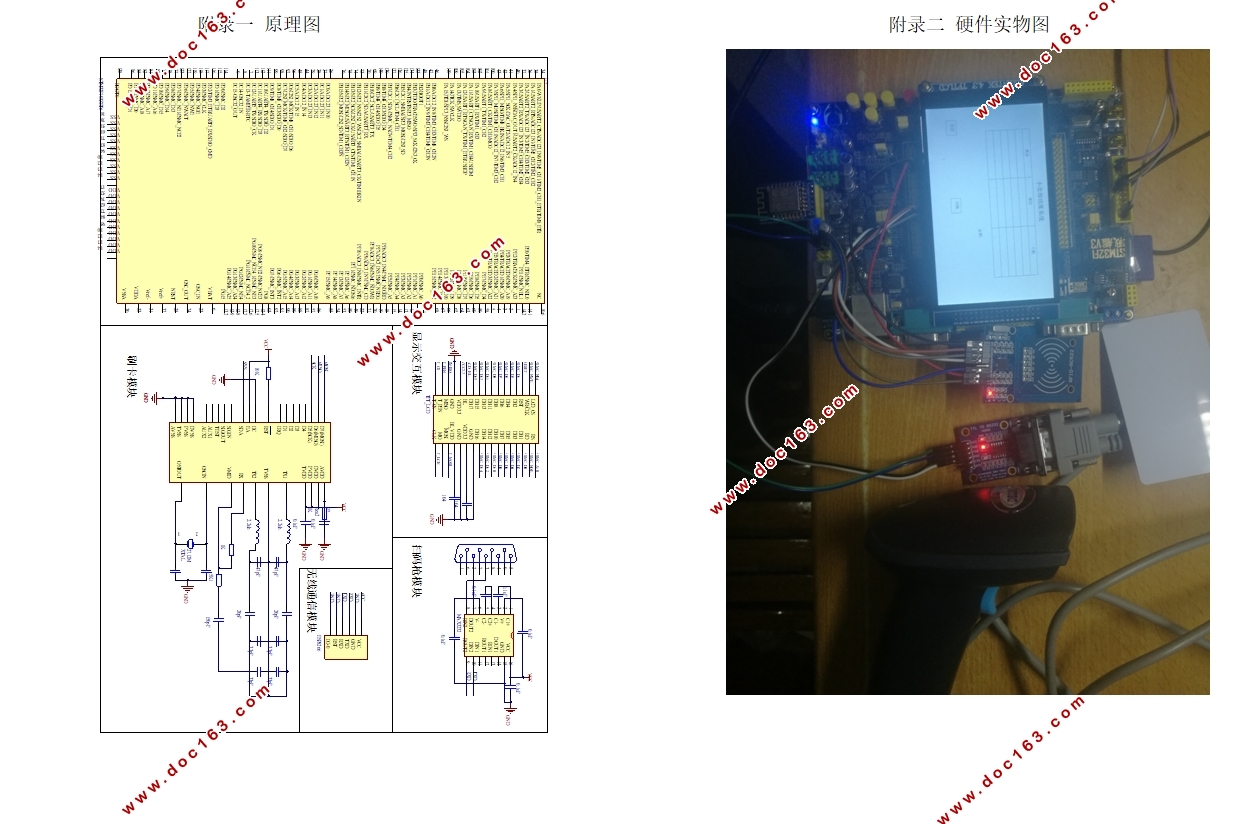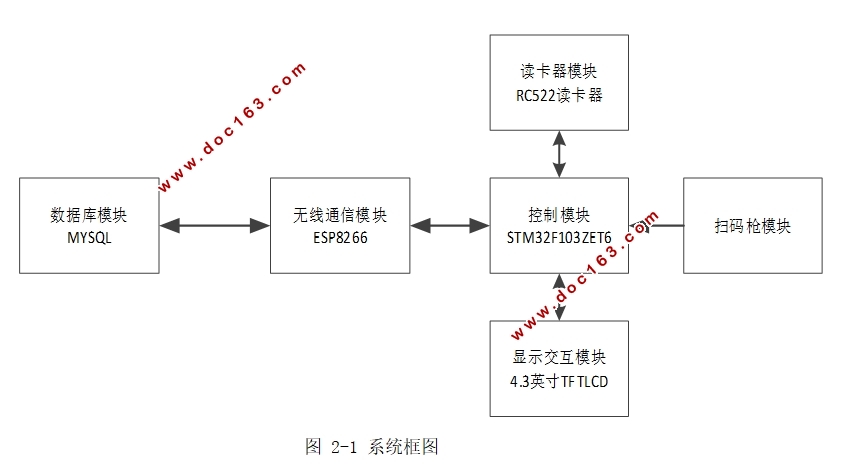基于STM32的超市自助结账系统的设计

1.无需注册登录,支付后按照提示操作即可获取该资料.
2.资料以网页介绍的为准,下载后不会有水印.资料仅供学习参考之用.
密 惠 保
基于STM32的超市自助结账系统的设计(任务书,开题报告,论文12100字)
摘 要
现代社会,人们对于效率越来越重视,但是等到结账的时候,却面对的是排队的等待,据调查显示,64%不愉快的购物经历都是由于结账排队等待造成的,为了提高顾客的满意度,国内外已经出现了一些自助结账的无人超市和便利店,其中比较出名的有AMAZONGO便利店和阿里无人超市,显然是意识到自助结账的巨大市场前景,所以本次设计一个超市自主结账系统。
设计完成了顾客自助扫码,自助刷卡结账,以及界面操作等操作,这样就会使很多中小型的超市能够完成不需要很大的设备就可以完成简单的自助结账操作。本设计主要包括条形码扫描,界面交互,IC卡读取,数据库更新等方面。
通过用户自助的扫描商品的条形码,RC522读卡操作,获取用户个人信息,最终完成结账操作。
关键词:自助结账控制系统条形码 IC卡交互
Supermarket Self-checkout System Based on STM32
Abstract
In modern society, people pay more and more attention to efficiency, but when wait until the checkout, they are facing waiting in line. According to surveys, 64% of unpleasant shopping experiences are caused by waiting in line for checkout, in order to improve customer satisfaction. At home and abroad, there have been some unlicensed supermarkets and convenience stores for self-checkout. The famous AMAZON GO convenience stores and Ali supermarkets ,they are obviously aware of the huge market prospect of self-checkout, so this time I designeda system for self-checkout supermarket [资料来源:THINK58.com]
The design completes the operation of customer self-service scanning, self-service card payment checkout, and interface operations, which will enable many small and medium sized supermarkets to complete simple self-checkout operations without requiring large equipment. This design mainly includes bar code scanning, interface interaction, IC card reading, database updating and so on.
Through the self-service scanning of product barcodes, RC522 reads card operations, obtains user personal information, and finally completes checkout operations.
Key Words:Self -Checkout; Control System; Barcode ;IC Card;interaction
[版权所有:http://think58.com]




目录
摘要 I
Abstract II
第一章绪论 1
[资料来源:THINK58.com]
1.1 课题研究的背景 1
1.2 自助结账系统的现状 1
1.3 自助结账的未来发展 1
1.4 自助结账系统的系统设计 1
1.5 本文的内容安排 2
第二章系统方案分析和与选择 3
2.1 系统方案设计 3
2.1.1 控制模块 3
2.1.2 显示交互模块 3
2.1.3 扫码模块 3
2.1.4 读卡验证模块 3
2.1.5 无线通信模块 4
2.1.6 数据库模块 4
2.2 系统方案 4
第三章硬件电路设计 6
3.1 硬件总体设计方案 6
3.2 控制系统电路设计 7
3.3 扫码枪硬件模块 9
3.4 读卡器硬件模块 9
3.5 无线通信硬件模块 11
3.6显示交互模块 12
第四章系统软件设计 13
4.1 软件开发环境 13
[资料来源:http://THINK58.com]
4.2 总程序描述和流程图 13
4.3 界面交互子程序设计 15
4.4 扫码枪子程序设计 16
4.5 刷卡子程序设计 18
4.6 无线通信子程序设计 22
4.7 数据库子程序设计 24
第五章系统的调试分析 27
5.1 模块调试 27
5.1.1 无线通信模块调试 27
5.1.2 扫码枪模块调试 28
5.1.3 刷卡模块调试 29
5.1.4 数据库模块调试 30
5.2 系统整体调试 31
第六章总结与展望 32
6.1 总结 32
6.2 展望 32
参考文献 33
附录一原理图 35
附录二硬件实物图 36
附录三主程序代码 37
致谢 43 [资料来源:http://www.THINK58.com]
